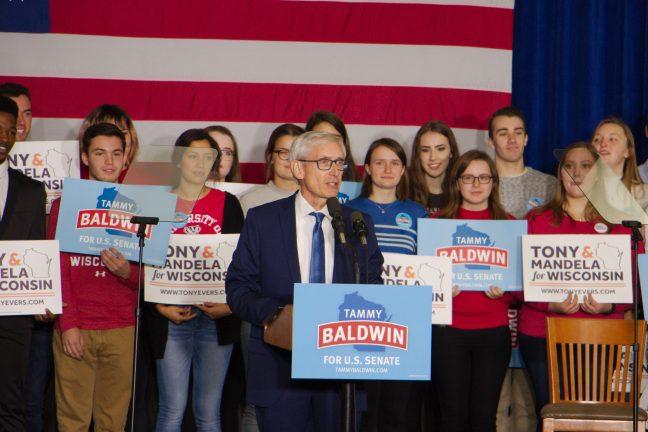The Legislative Fiscal Bureau projections for Evers’ proposed budget for the 2021-23 biennium show that the state will face a $2 billion dollar shortfall if economic conditions do not change. Republicans legislators wasted no time before they again condemned Evers’ “liberal wish list” as fiscally irresponsible — this time, with a number attached.
In their first public hearing on budget revisions, co-chairs of the Joint Committee on Finance, Rep. John Nygren, R-Marinette and Sen. Alberta Darling, R-River Hills, used the projections to blast the budget and the decisions to spend more on schools and Medicaid as “irresponsible.”
Rep. Robin Vos, R-Rochester, speaker of the State Assembly, has said there is “no way” Medicaid will expand and has attacked other parts of the budget for widening the state deficit.
The thing is, the deficit they’re referring to isn’t necessarily a budget deficit at all. It is what economists call a “structural deficit” — a deficit that may arise if a budget is passed and there are no changes to employment, inflation, wages, economic growth, and tax revenue. These are projections of what could be, not what will be or what is.
One reason for deficits may be increases in state spending. It’s true that there are some spending hikes even through new services aren’t offered. The Wisconsin Budget Project explains that some factors affecting spending are out of state government’s control.
“Population growth, inflation, and an increase in health care spending mean that the state budget must grow every year just to keep providing the same level of services,” according to WBP’s website.
Passing a “flat” budget — one without higher spending — would likely “decrease assistance available to struggling families, since costs continue to increase.” Many of the items included in the biennial budget also address priorities that Republicans have left unattended during the Walker administration, like road repairs and education.
Thankfully, it’s likely that this budget will produce the economic conditions that will avoid the projected shortfall. The critical investments in healthcare and education Evers’ budget proposes will secure healthier, better-educated communities which have long been the foundations for Wisconsin’s growth and — more importantly — shared prosperity.
The structural deficits of previous biennial budgets have been similarly high: $1.77 billion in 2015-17, $2.51 billion in 2011-13, making the likelihood that this one will materialize seem unlikely.
Republicans’ anti-deficit rhetoric, at every level of government, has always been a successful strategy. But according to the same Fiscal Bureau projections, Wisconsin saw massive structural deficits under Walker’s budgets, too. So, do Republicans actually care about deficits?
No, of course they don’t — but there are huge political benefits to complaining about deficits, rather than criticizing the programs the deficits finance. By complaining about deficits, conservatives can obscure what they are really opposed to — distributing public resources equitably.
Instead of acknowledging that they are ideologically committed to deregulating businesses, cutting taxes for the rich, defunding schools and taking people’s public health insurance, Republicans lambast the “fiscal irresponsibility” of government programs designed to help vulnerable people.
Tragically, Democrats buy into this rhetoric, and increasingly temper their potentially radical proposals to something “fiscally responsible” — or more palatable to conservative hypocrisy. Since it’s very rare that arguments against budget deficits are made out of good faith concern for long-run economic conditions, this isn’t a good policy-making strategy.
The conservative argument is intuitive though — if you think state government budgets work the same way household budgets do. When people manage their household finances, they do everything they can to not spend beyond their means. People’s resources are finite, so they have to break even.
But government budgets, even ones that are constitutionally required to be balanced, don’t operate this way. State governments can sometimes issue bonds to finance spending like Wisconsin has for some infrastructure projects, and they can certainly run structural deficits — the way Wisconsin’s biennial budgets have for years.
Don’t let Republicans get Wisconsin riled up about deficits — especially ones that don’t exist yet.
Sam Ropa (ropa@wisc.edu) is a senior majoring in geography and anthropology.


